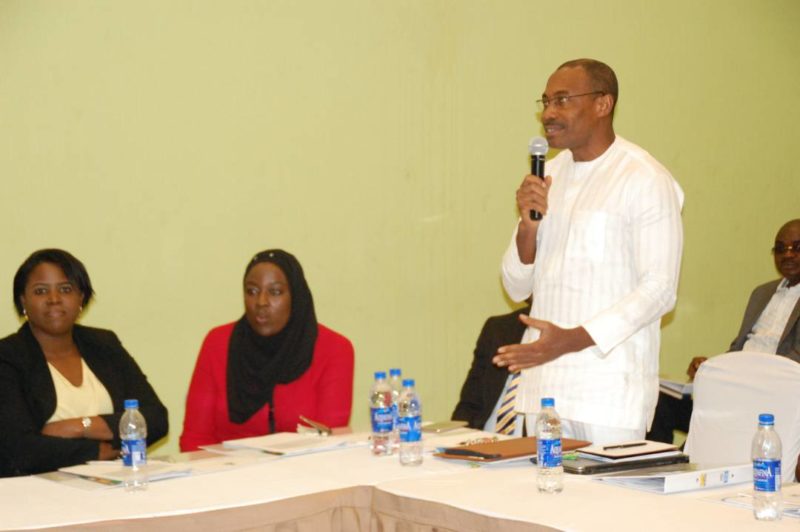The Federal Government plans to issue green bonds worth N10.6 billion to finance renewable energy projects, to protect the environment. This was made known by the Director-General, Debt Management Office (DMO), Ms. Patience Oniha, during the Nigeria Green Bond Investors Forum in Lagos, on Friday, December 15, 2017.

Federal Ministries of Environment and Finance, in collaboration with Green Bond Advisory Group, organised the event.
Abuja had played host to a similar event the previous day.
The DMO DG, in her opening remarks, said the forum was to raise fund for a project, with hope of a bright future.
What are green bonds?
Green bonds are bonds used exclusively to fund projects that have specific environmental and/or climate benefits. They can also be defined as debt instruments issued to raise capital to fund specific clean power projects or projects aimed at reducing climate change risk.
The bonds arose out of investors’ need to invest in high-growth, clean energy sector projects other than through equities and funds.
In 2016, $81 billion worth of green bonds were reportedly issued globally, and about $69 billion worth of green bonds have already been issued this year, with the total projected value at $150 billion.
Nigeria’s maiden green bond issue
Up to N10.69 billion is expected in Series 1 issuance under the N150 billion green bond programme in Nigeria, and the tenor is five years.
The minimum expected subscription is N10 billion, with N1 billion increments. According to the promoters, there should be no fear of under-subscription because the figure is so meagre that what would eventually result is over-subscription.
The book build for the bonds is expected to open on Monday, December 18 and close on Wednesday, December 20. It will be listed at the Nigerian Stock Exchange (NSE) on Wednesday, January 10, 2018.

In her presentation, Deputy Director, Department of Climate Change, the Federal Ministry of Environment, Hajia Halimat Bwari, who represented the Environment Minister, explained climate change/global warming, its causes and effects.
According to her, different parts of Nigeria are diverse in everything, including climate change. She said “while the southern part is at high risk of flood, the northern part is at the risk of dryness”. The middle, she added, experience erosion.
Noting that the Federal Government signed the Paris Agreement in 2015 committing Nigeria to reducing emissions, she said “what we are doing here is part of that commitment.”
She asserted that N142 billion would be required to finance renewable energy projects in the country, adding that the ministry decided to issue the green bond as alternative source of funding because of the huge capital outlay required to finance the nation’s renewable energy projects.
Bwari said the projects would go a long way to reduce carbon emissions in Nigeria, while facilitating the country’s efforts to meet its commitments in the Paris Agreement on Climate Change.
Area of investment
Proceeds of the bonds will be used on: renewable energy micro-utilities, energising education programme, and afforestation programme.
Projects listed in the programme include rural energy access, the great green wall programme, the national clean stoves scheme, the clean energy transportation scheme and the Nigerian erosion and watershed management project.
Upping the gains
The primary aim of the bonds issuance is to have sustainable environment, which the world has been investing hugely in. But the green bond will up the benefit, as investors have been promised return on investment, thereby boosting the economy. The ministry used the sheer butter tree as an instance.
“While the tree provides green environment, the seeds, which are now in high demand, will be harvested and sold,” it said.
Another tree cited was the teak used for electric poles, which has maturation period of seven years; and after harvest, the farmer does not have to plant fresh seeds, as the roots underground will sprout new trees.
Other benefits of the green project are the direct and indirect jobs to be created. Gardeners, foresters and allied workers would have ready jobs.

Why invest in green bonds?
According to Muhammad Mamman-Daura of Chapel Hill Denham Advisory Ltd, investing in the green bond is investing in the future, as green bond is the future. He stated reasons investment in the green bonds is necessary.
- Maiden issuance in Nigeria and Africa. Being the first issue, the risk of losing investment is very low.
- Segregation of issue proceeds and application towards ring-fenced projects.
- Provides competitive investment returns relative to conventional bonds.
- Strong assessment ratings. The country’s strategy earned it GB1 (excellent) in Moody’s Assessment.
- Two-fold contribution to the preservation of Nigeria’s climate and economic development. Environmentalists also have at least one reason to invest – to protect the environment.
PFAs ready for green bond
Stakeholders that participated in the forum include Pension Funds Administrators (PFAs), Federal Ministry of Finance, Inter-ministerial Committee on Climate Change, Nigerian Stock Exchange (NSE) and DMO, among others.
Managing director of Sigma Pensions, Dave Uduanu, who spoke on behalf of the PFAs, said they were happy and ready to work with the Federal Government to make the green bond project work.
By Innocent Onwuji
